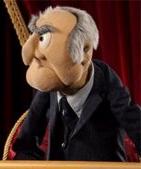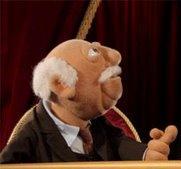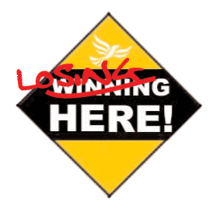
Recently whilst commuting to and from the campus I've been reading the history of
my alma mater,
From Vision to Reality: The Making of the University of Kent at Canterbury by Graham Martin (the University's first Dean of Natural Sciences and second Deputy Vice Chancellor). The book is a fascinating insight into the origins of the University and some of its distinctive ideas, several of which had either been modified or fallen away by the time I first started there (nearly a decade after it was published).
Much of the focus is understandably on the 1960s, showing how the plans came together, how Canterbury was one of several proposed sites, all with ardent backers and developing plans. When Martin writes that the proposal for a University of Thanet was "furthest along the road" my reaction is that so is Thanet! One of the reasons why I opted for Kent in the end is its location - the view of Canterbury is gorgeous (especially at night when the Cathedral is lit up) and I wonder if I would have wound up going to Thanet had it been sited there instead. The university's original strange name is also explained - at the time the practice in the UK was to name universities after the town whose boundaries they were located in, but the Canterbury campus straddled the border between the-then county borough (a unitary authority in case you're wondering) of Canterbury and the jurisdiction of Kent County Council. With sponsors of the project coming from both "town" and "county" there was much debate and the Executive Committee of the Sponsors was split 50:50 between "University of Canterbury" and "University of Kent at Canterbury". (The chairperson declined to use the casting vote as he was clearly from the county - I wonder if this is the origin of the cautious attitude to casting votes that is particularly strong at the University.) Then it became clear that it would not be possible to have the same name as
another university in the Commonwealth. The name persisted for decades even when expansion opened up a site at Chatham, but was finally officially changed to the simpler "University of Kent" three years ago (I think my MA graduation was the last under the old name) when the Medway campus was established. By this time local government changes had replaced the county borough of Canterbury with a much larger district, but Medway is now within a unitary authority! One wonders if this caused any headscratching...
One of the more radical ideas that stands out is the original academic plan to have no Departments below the Faculties and to make all degrees to an extent inter-disciplinary, with the first year by and large being a faculty wide program of study. The idea soon fell to pieces because of problems in individual subjects - for instance new students reading Maths often hadn't taken Chemistry at A-Level and vice versa, meaning that a lot of catch-up work would be required - and eventually the drift towards individual Departments for each subjects and specialised first years developed. Martin speculates that it would take a fundamental restructuring of the way A-Levels are operated for such an inter-disciplinary approach to work. That said the idea is not totally dead - in my first year we were only required to pick half our modules in our subjects and encouraged to take wilds in the other half. And the
Open University has a similar interdisciplinary drive in at least the Humanities with most of its BA degrees including the course
An Introduction to the Humanities as a core element.
It's also interesting to note that the University's Classics and Theology teaching seems to have come about because of external decisions rather than a specific desire to offer those subjects at the outset. The man recruited to be the first Dean of Humanities, Guy Chilver, was a Classicist from Oxford and so that committed the university; whilst similarly the first appointed Master of Eliot College, Alec Whitehouse, was a Theologian from Durham. I found it surprising that there was ever any doubt about teaching Theology, given the location, but it seems that from the start there was a strong secular drive in certain quarters. The University's religious connections have never been great - the choice of the Archbishop of Canterbury as Visitor was more in mimic of Durham (the University that Kent seemed to copy the most) whilst the view of the Cathedral from Eliot and Rutherford dining halls that was once cited as "evidence" that the institution as anti-semitic by an article in the
Jewish Chronicle was frankly the obvious only choice and clearly preferable to the alternative of a gasometer. Holding the graduation ceremonies in Canterbury Cathedral has provided their main redeeming feature.
One of the interesting, and at times controversial, aspects of Kent has been its "collegiate" system. Of all the UK universities that I'm aware of with "colleges" (the others being Wales, London, Cambridge, Oxford, Durham, Lancaster, York), Kent has always struck me as having the weakest. Reading this book it's easy to understand what went wrong. The original idea was to combine accommodation and teaching in single buildings as a means to cut down on dead space, and at the same time to create vibrant academic communities. As note above there were planned to be no Departments, so the College would be unrivaled as the right sized unit for students' loyalties. Each was expected to have about 600 students and equivalently proportioned staff, with about half living in the college itself (and the rest in local accommodation arranged by the university) and all eating and studying there. Every student would be allocated a tutor to oversee them (remember that in 1965 most undergraduates would be legally below the age of majority) and the Master of the College was expected to be a significant figure in their university lives. It also seems that the early view of the colleges was almost like a boarding school with separate houses. However the plan quickly fell apart.
The university's expansion was always planned to be one of the fastest for a new university, but funds for new colleges did not keep up and the result was that only four were ever built. In later years when there was further demand for student accommodation in Canterbury the solution was not to build further colleges but to build non college accommodation. As a result the proportion of students who actually live within the College walls is ever smaller. The hopes that students living out would stay on campus, studying in their colleges, until dinner rapidly proved to be futile. More and more operations and facilities have shifted from the Colleges to the central university over the years, whether alumni relations, the tutorial system, accommodation services, catering (with some dining halls closed and even completely dismantled) and so forth, whilst the abolition of College amenities fees has removed the student's direct stake in their College. With very few college wide activities or competitions, as well as the rise of the Departments, it is little wonder that very few students or later alumni feel much loyalty to their college. (And to make it even more absurd, many graduates who have returned for postgraduate study have been placed in a different college suggesting that even the University isn't too fussed.) Indeed I now understand that accommodation is allocated irregardless of one's college - one wonders what purpose the structure serves at all now.
(I do remember that in my MA year the Students' Union Executive were at one point asked by the University to write a report on what students felt about the collegiate system. It rapidly proved the point that the view a committee will reach can often be preguessed by its ex-officio membership - containing all of the Presidents of the Junior College Committees amongst others. The SU President (Alix Wolverson) was a former President of the JCC in the one College where some semblance of collegiate feeling still resided and where there was a big event put on by the JCC. So she decided at the outset that we would tell the University why colleges were a good thing and told dissenters - mainly myself - that we should be "constructive" - i.e. agree with her personal opinion.)
One other chapter of interest is the one on how the University has coped with crises. Starting with the collapse of the old Canterbury to Whitstable Railway tunnel, destroying part of the Cornwallis Building in the process, Martin proceeds to look at some of the poor press coverage the university has received and explain the problems (one stemmed from a return for league tables inadvertently giving the grades for
graduate students not
graduating students and this error proved impossible to correct in time). He also briefly looks at some of the student protests. There is a widespread myth of the 1960s and 1970s as being an era of student protest when students were seeking to change the world, yet the protests at Kent seem to have been by and large because of either university or government education policies. Given the paternalistic attitude that the University had in the early years one can well understand the protests as a consequence of broader clashes in society, and some of the issues would doubtless elicit support today (e.g. seemingly unfair expulsions, unreasonable financial charges) even if the vehicle for expressing dissent would be different. However some show the change in attitudes - who today would object to the idea that students should be prevented from graduating if they still have outstanding debts with the university?
Whilst this book never pretends to be an objective history, and as a UKC publication has the possible stigma of an "authorised account" it does nevertheless make for a fascinating and illuminating read.
 It really hasn't been the Liberal Democrats' year, has it? They started by brutally stabbing their leader in the chest, have had so many scandals surrounding leading figures that I've lost count and have since staggered about under their new leader, with many openly questioning whether they made the right choice and invariable speculation about a Kennedy restoration, whilst the party tries to find a direction and only gets the occasional good cheer from nasty, vicious, hypocritical local campaigning that had even some of their own ashamed of their campaign.
It really hasn't been the Liberal Democrats' year, has it? They started by brutally stabbing their leader in the chest, have had so many scandals surrounding leading figures that I've lost count and have since staggered about under their new leader, with many openly questioning whether they made the right choice and invariable speculation about a Kennedy restoration, whilst the party tries to find a direction and only gets the occasional good cheer from nasty, vicious, hypocritical local campaigning that had even some of their own ashamed of their campaign. Now comes the news that three of their candidates from the last general election have joined the Conservatives. (BBC News: Lib Dem trio become Conservatives) Now the Lib Dems will try to write these three off as insignificant individuals. But amongst them is Richard Porter, who authored the Lib Dems' 2005 manifesto for the LGBT community. So do the Lib Dems consider LGBT issues to be insignificant or are they lying?
Now comes the news that three of their candidates from the last general election have joined the Conservatives. (BBC News: Lib Dem trio become Conservatives) Now the Lib Dems will try to write these three off as insignificant individuals. But amongst them is Richard Porter, who authored the Lib Dems' 2005 manifesto for the LGBT community. So do the Lib Dems consider LGBT issues to be insignificant or are they lying? The comments by the three no doubt say a lot for many still within the Liberal Democrats:
The comments by the three no doubt say a lot for many still within the Liberal Democrats:













